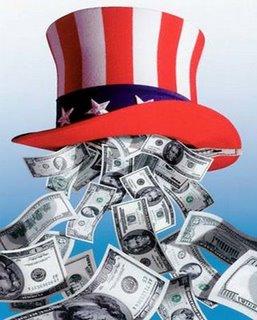The federal government spent $200,000 studying why congressmen sometimes make vague statements. It’s no surprise why leaders in Congress proposed cutting Political Science from the National Science Foundation dole and giving it to more worthwhile projects in the physical sciences, like cancer research. After wasting five years as a PhD graduate student desperately trying to find value in my Political Science degree, I could not agree more with Congress’s proposal.
“Scholars are paying less attention to questions about how their work relates to the policy world, and in many departments a focus on policy can hurt one’s career,” admitted Harvard Political Scientist and former Assistant Secretary of Defense, Joseph Nye. “Advancement comes faster for those who develop mathematical models, new methodologies or theories expressed in jargon that is unintelligible to policymakers.”
Contrary to popular belief, the academic study of politics has little to do with public policy: it’s the hyper-analytic psychological, mathematical, and anthropological study of civic behavior. “Radical Moderation: Recapturing Power in Two-Party Parliamentary Systems” reads one recent article in the prestigious American Journal of Political Science about how a political party’s reputation persists in between elections for countries with non-presidential systems.
As a graduate student, I was scolded for wasting time trying to reach out to policymakers. During one conference when I moderated a panel with a congressman about how technology could improve the democratic process, one well-meaning professor emailed me, “You really need to focus on your academic work and stop wasting time on these sorts of excursions,” he wrote.
Unlike abstract research in the physical sciences, which has a track record of turning into world-changing innovations, Political Science has no such history. There are volumes of research on how to build better political systems than the broken two-party model. But, because political scientists don’t have a relationship with policymakers, they get shut out of decision making. A harvard professor/United Nations consultant once told me how Afghan President Hamid Karzai completely ignored experts and decided on the structure of his government in a tent. She laughed out loud when asked if Political Science research was having an impact.
Political Science is also undermining higher education’s solemn oath to better educate citizens and scientists. “I failed bio-chem twice, so I switched to poli sci,” one of my students told me, while I was a graduate teaching assistant. The social scientist offered calculating, mediocre physical science students a chance to boost their GPA for graduate admissions. One chemistry professor at my old university called this the “pre-med game.”
“There is an appropriate and necessary role for the federal government to ensure funding for basic medical research. Doing all we can to facilitate medical breakthroughs for people … should be a priority. We can and must do better,” said House Majority Leader Eric Cantor (CrunchGov Grade: A). “Funds currently spent by the government on social science — including on politics of all things — would be better spent helping find cures to diseases.”
I believe Political Science could be more useful, but until then, give it to cancer research or a few enterprising young innovators. No educator should be allowed to skirt their responsibility to society, especially when scientists have shown that they can use the money to make the world a better place.
Read more of this argument on The Atlantic.
